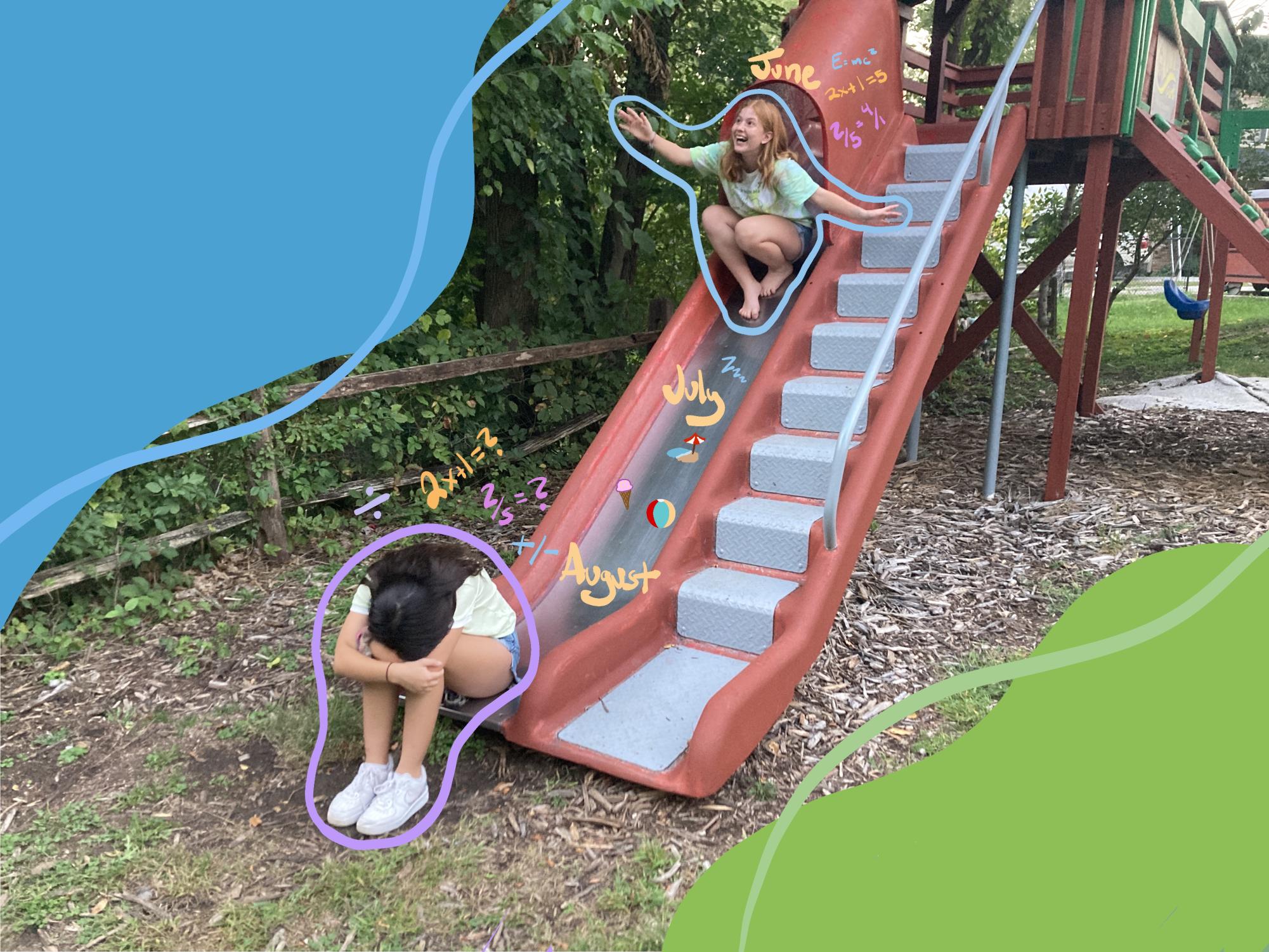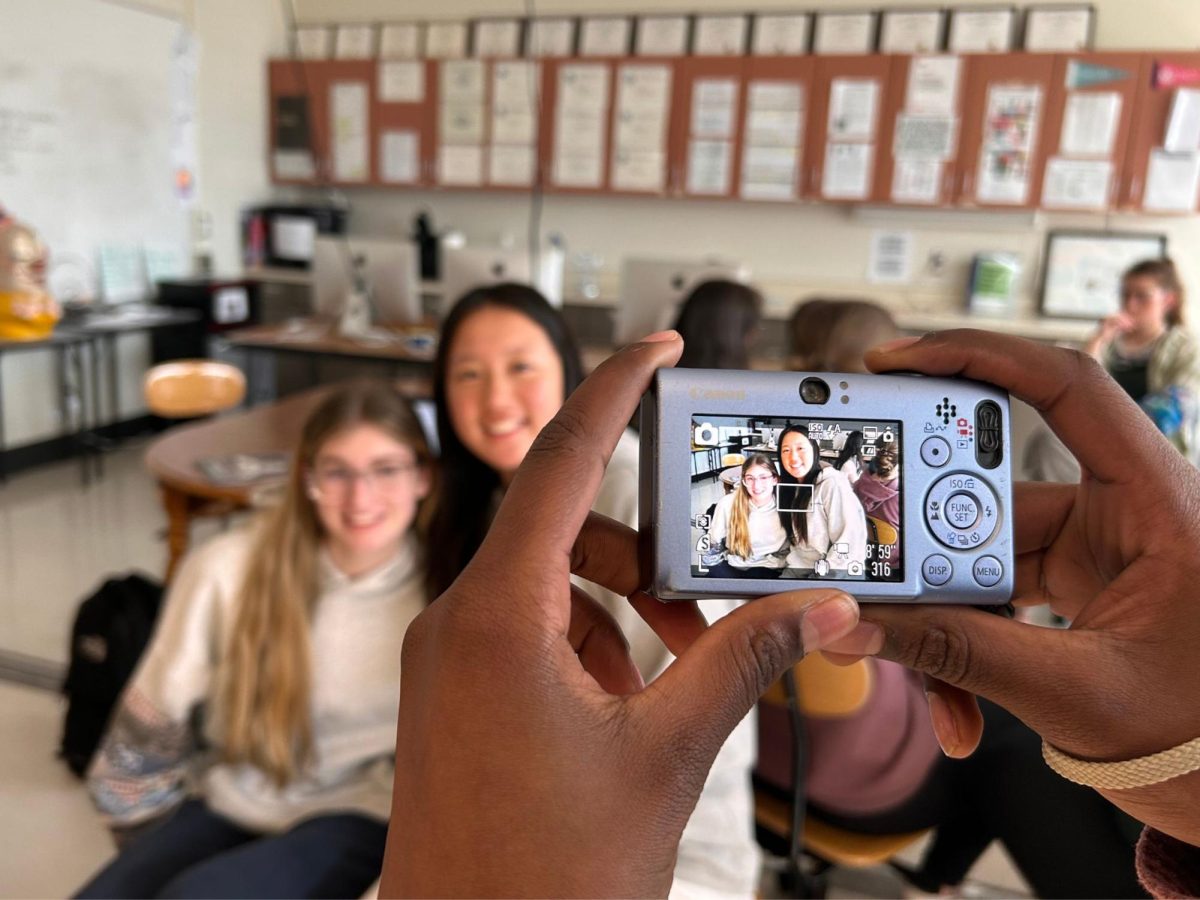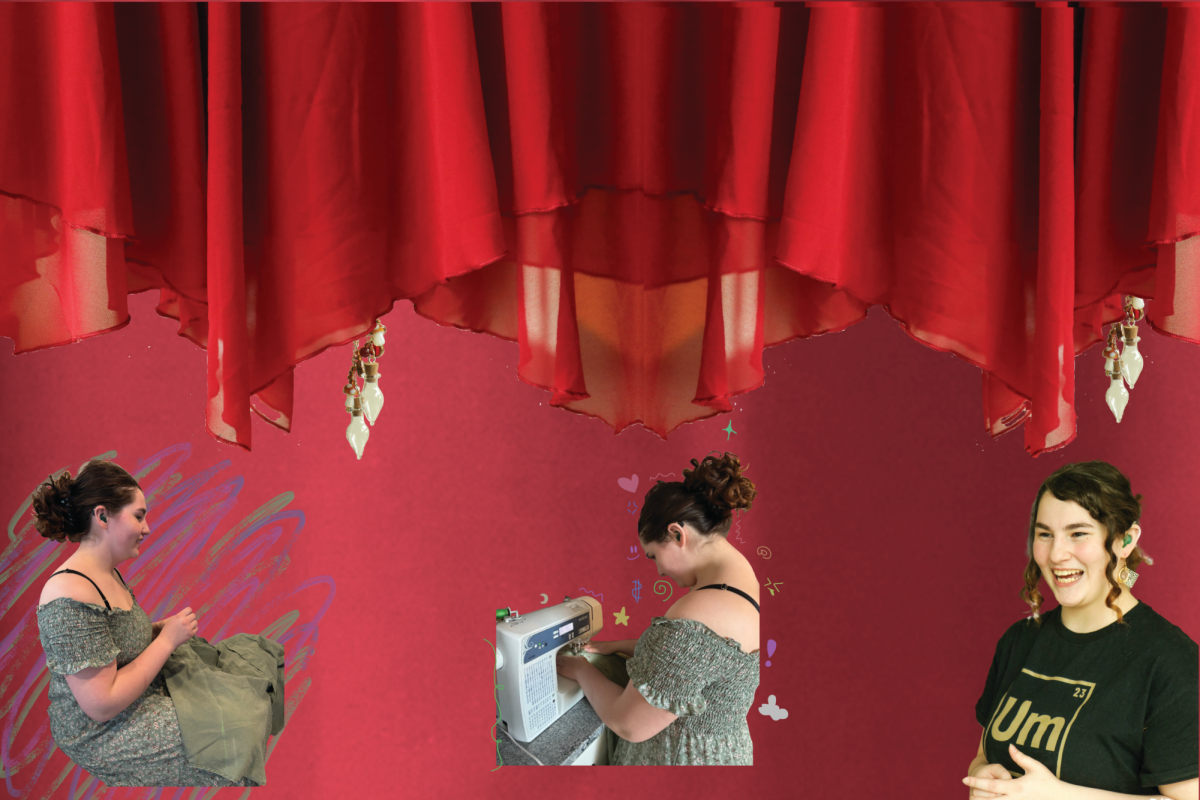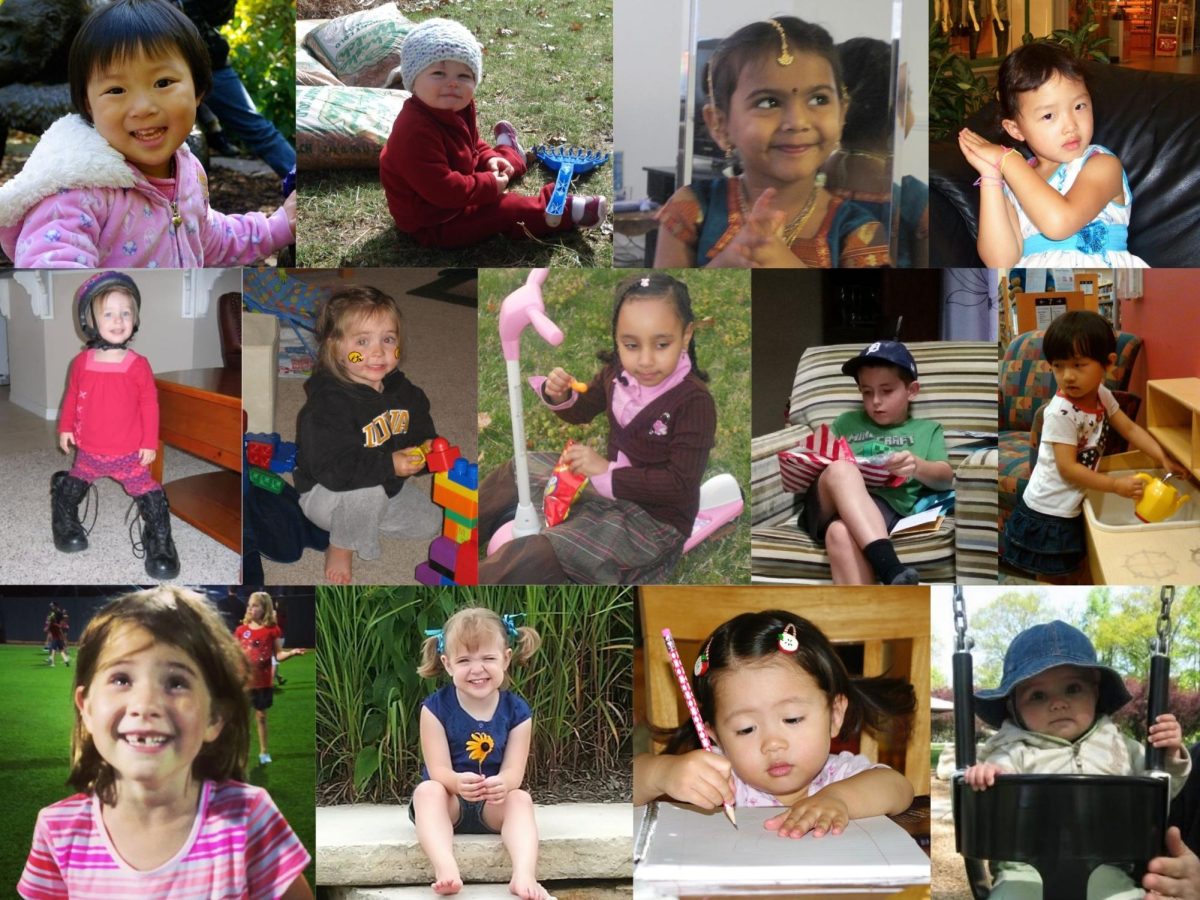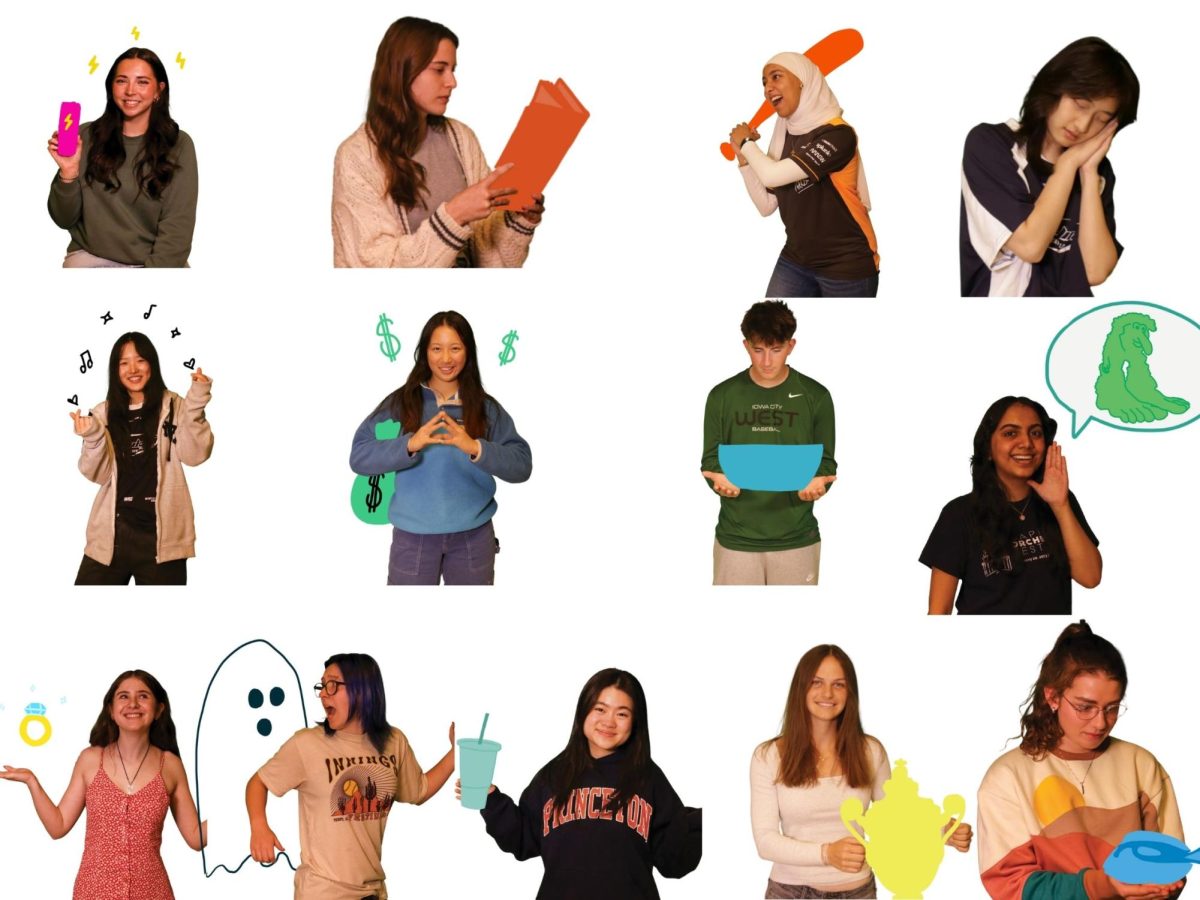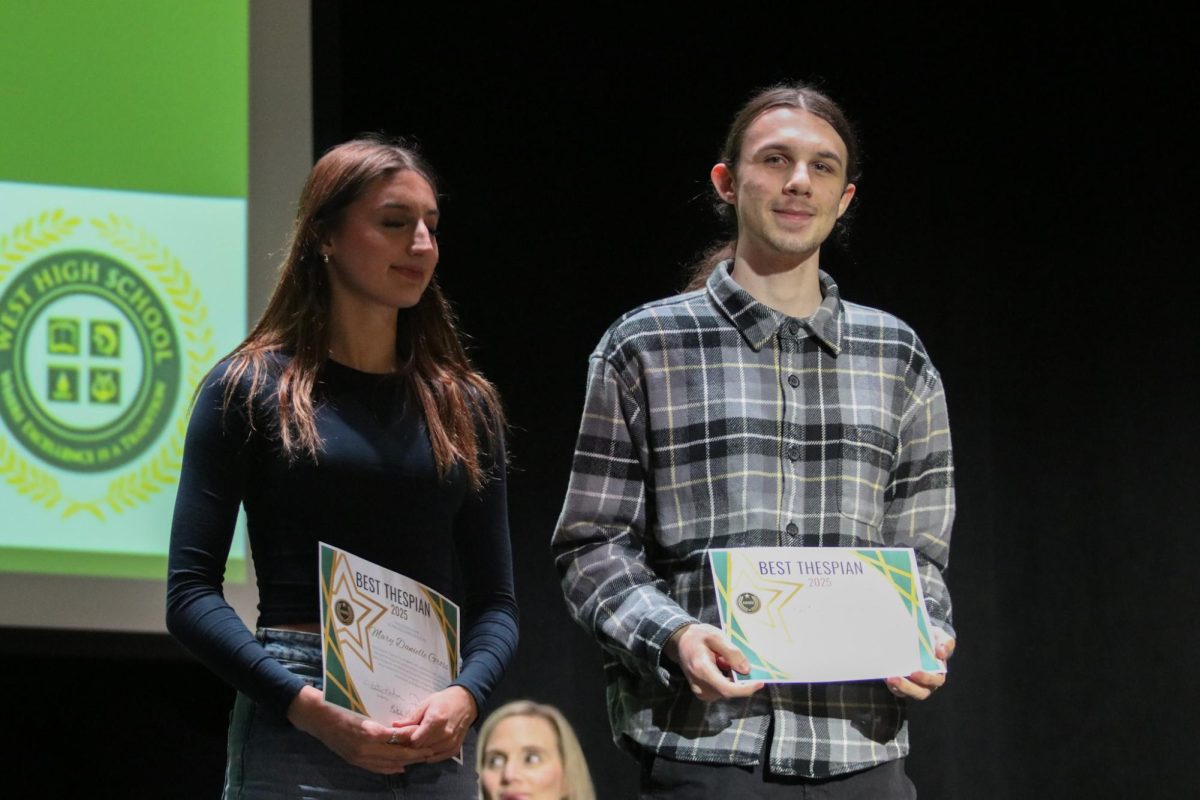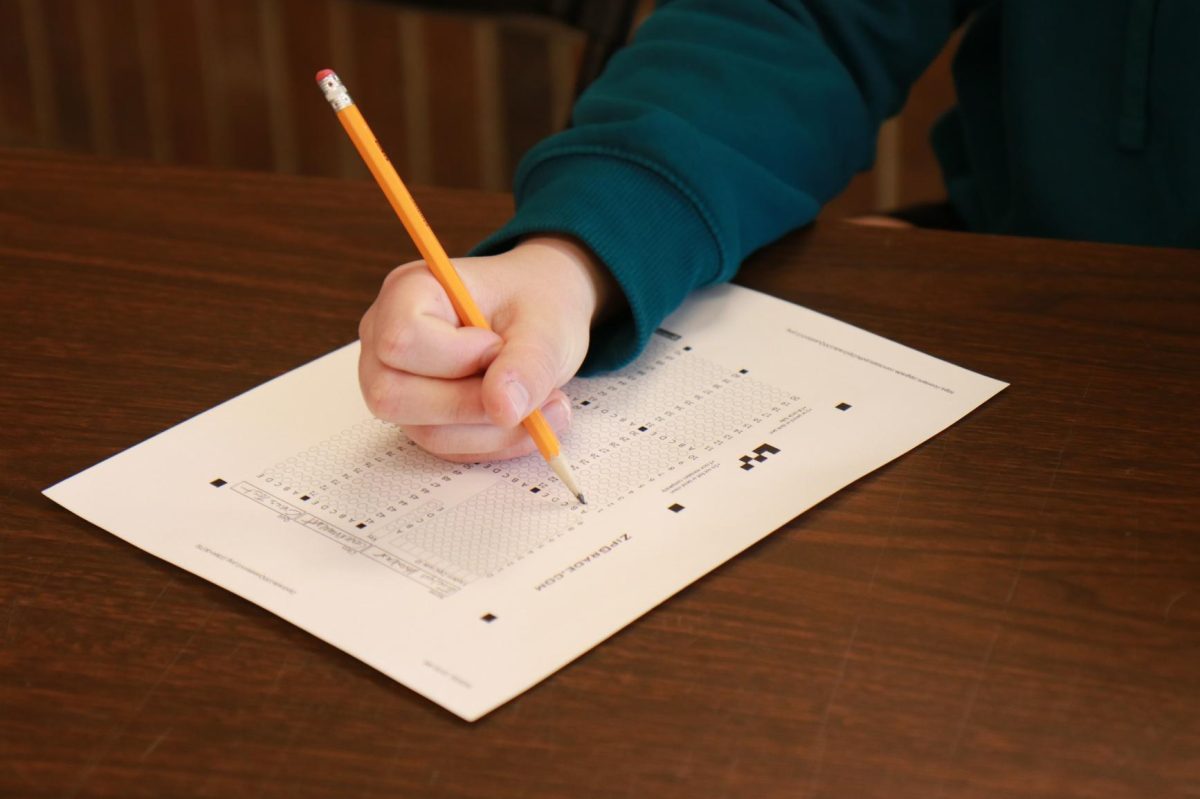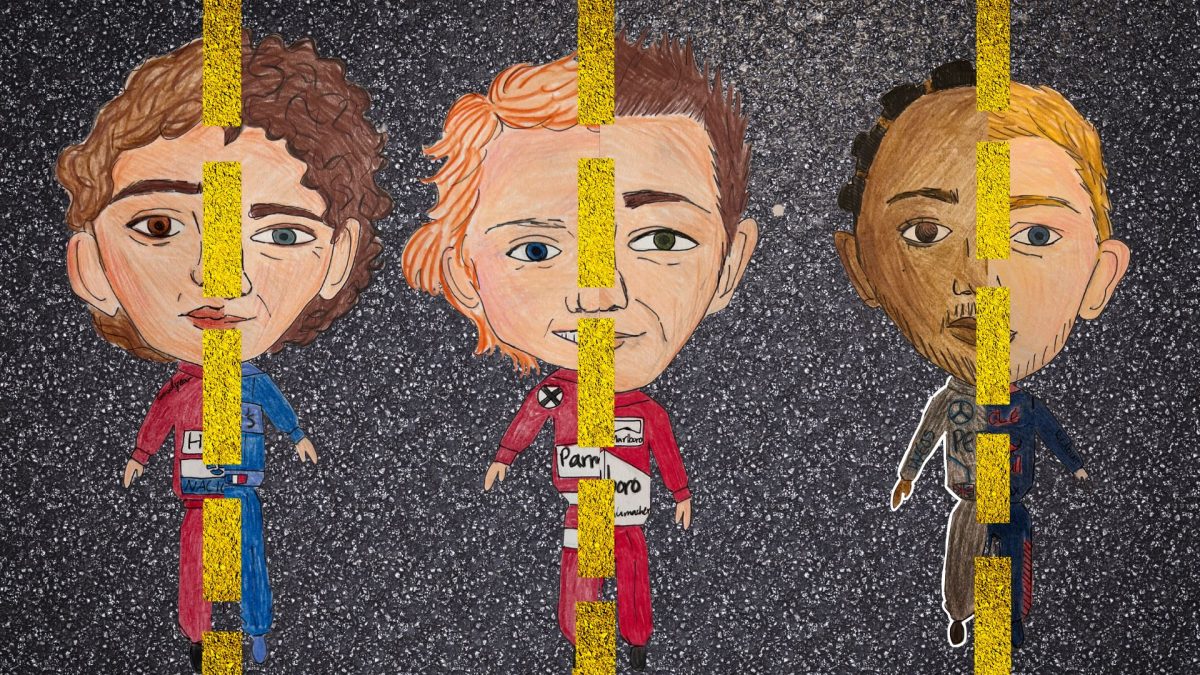The final bell rings and a sea of students flood out of school. It’s been nine long months of waking up early, late nights, essays and math problems. They’re ready to embrace summer vacation, which in the ICCSD means weeks of freedom and relaxation. While these breaks from school are vital for students and teachers, they also come at a cost.
Summer slide, also known as summer learning loss, describes the phenomenon of losing learning over the summer that teachers taught during the school year. Some research on this phenomenon has also shown that students from lower-income households forget more of what they’ve learned over the summer than students from higher-income households, but not all do.
Why is this? Well, there is a knowledge gap between kids from high-income families and those from low-income families by the time they start kindergarten. Later comes the topic of resources, which kids from higher-income households have more access to over the summer.
However, a study by Paul von Hippel has made many question how valid the evidence we have of summer learning loss is. Researchers often use methods that are decades old to study this phenomenon, and when more modern methods are used, results look different. Hippel also acknowledges the achievement gap between high- and low-poverty schools but questions how much of it, if any, is due to summer learning loss. He cites studies that do show a gap between high- and low-income schools, but those students lose the same amount of learning over the summer.
The summer slide in the ICCSD
While the research isn’t always conclusive, ICCSD teachers have watched the summer slide happen.
Emily Carrizales, a math teacher at West, spends several weeks reviewing previous years’ material with her AP Precalculus students, which many of her students complain about happening too fast. Regular Precalculus spends almost half a trimester on review.
While she doesn’t have the data to prove it, Carrizales said she could understand why income could lead to students being affected differently by summer slide.
“I know that my sister can afford having her kids go to a tutor over the summer. They’re going to lose less because they have the opportunity to be reviewing things over the summer, or if I was able to do my review packet because I wasn’t working or taking care of a sibling or doing other things,” she said.
Lori Chasse, a sixth-grade teacher at Garner Elementary School, said one of the ways that teachers know summer slide exists is the difference in benchmarks between the spring and the following fall. The testing benchmark at the beginning of the fall for sixth graders is lower than the benchmark in the spring for fifth graders, showing that students forgot some of what they learned the previous year.
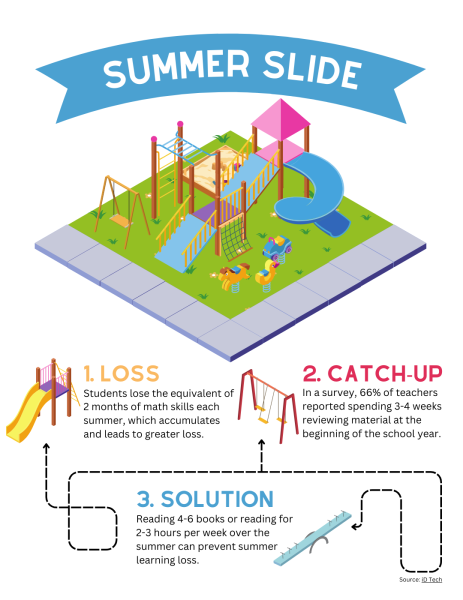
Year-long school
One of the ways to prevent summer learning loss is to eliminate month-long summer breaks and instead distribute schooling more evenly. The idea is that students will have less time to forget what they have learned if most of their days off are in summer.
Chasse used to teach at an elementary school in Colorado that used a year-long school model. Students split up into four different tracks, and each went to school for about nine weeks and then had a three-week break.
This was Chasse’s first teaching job, and she noticed the difference the schedule had on her students when she started teaching on a traditional calendar.
“When I went to traditional calendar, I realized kids can burn out, and teachers do too,” Chasse said.
She enjoyed teaching on a year-long calendar because she felt like kids were missing less school and were able to come back from their three-week breaks refreshed and able to pay attention.
This calendar benefited the teachers, too. It was easier to find substitute teachers because teachers who weren’t teaching that week could fill in if they wanted to. It also meant that the building was never at total capacity, so it didn’t have to be big enough to fit the entire student body.
In 2022, ICCSD superintendent Matt Degner considered moving the district to a year-long calendar. This calendar would feature four-day weeks instead of five and extended breaks throughout the year. The issue with switching to this model would be logistics, specifically finding childcare on Fridays for those who need it and compliance with the state law.
According to Iowa law, school districts must apply for permission before switching to a year-long calendar. Year-long schooling is also only allowed up until eighth grade, creating an abundance of issues.
Summer reading programs
To combat summer slide, many libraries offer summer reading programs, such as those offered by the Coralville Public Library. These programs are free and are usually targeted towards students grades K-12. The Coralville program has between 250 and 400 kids signed up each year.
Karen Stierler is a librarian at the CPL and notices the similarities between losing learning in both reading and math over the summer. “Students when they aren’t doing any kind of math over the summer it’s so hard to start up and over again. They really do lose a lot, but with reading, it’s the same thing. But if the kids are reading in the summer, I don’t think there’s as much of that slide there.”
The Coralville program has three different sections: one for kids, one for teens and one for adults. They all encourage people to read and provide participants with prizes for completing reading-related challenges.
In short, preventing summer slide doesn’t necessarily mean solving complicated math problems or reading complex literature. More simple activities like learning a little bit of a language, reading a book or even baking can help prevent learning loss. Doing your best to prevent summer slide will make the transition to the next school year all the more smooth.




